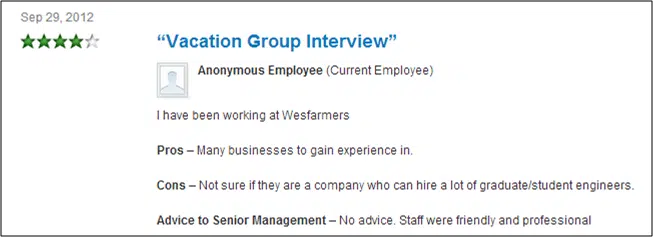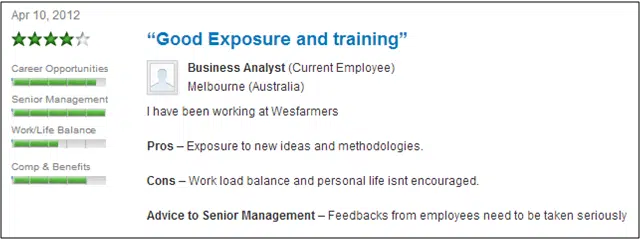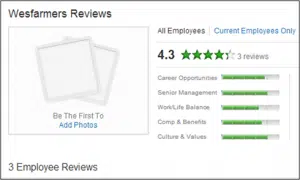Some mid- to large-sized companies in Australia and around the globe are just getting used to the idea that they have a brand identity and a corporate reputation that must be managed. However, the conversation about employer brand identity and reputation management has already changed.

In this article, we take a tour of one of the most prominent ex-employee review websites—looking at the powerful impact these websites can have on companies’ reputation. In a follow-up article, we discuss a tool that every Australian company can use to decrease the likelihood of falling prey to negative reviews by ex-employees.
By the way, if you think negative reviews from ex-employees
don’t affect a company’s brand and reputation, think again. Better yet, read this short case study about the woes faced by a prominent professional services firm when it became the target
of a flood of negative reviews by former employees.
Opening the Glassdoor
At Glassdoor, potential employees—or marketplace competitors—can browse reviews of your company without even logging in. Creating a free account, however, does open up access to additional details. For the purposes of this article, I looked at the employee ratings for Australia’s largest company, as reported by The Australian’s annual Top 50 report.
From the Home screen, I select “Companies” in the top green navigation bar, then type “Wesfarmers” in the search box.
In the blink of an eye, I have a snapshot of this top-ranked company’s reputation, as developed by its employees and former employees, not its own marketing department’s efforts. According to Glassdoor, Wesfarmers enjoys a 4.3/5 ranking and employees are “very satisfied.”
What’s missing is any information about how many reviews have been compiled to create this 4.3 rating. Let’s explore further. With one more click I learn that Wesfarmer’s 4.3 rating is the result of reviews by only three employees.
If you are a marketing professional or otherwise tasked with managing your company’s brand and reputation, this should chill your heart.
Not only does corporate spin no longer control company brand identity and reputation, but as few as three employees can have a terribly public effect on a top company’s standing in the eyes of potential employees.
Let’s look at one more aspect of employee review sites like Glassdoor. When you take a look at the actual employee reviews, you will notice a couple items of significance from the point of view of reputation management.



- Employees can rate a company in several different categories. This can be very useful for a corporation engaged in a campaign to compete for employees by differentiating its corporate culture, for example.
- Employees can leave completely anonymous reviews.
- The anonymous employee’s review has the same weight as the business analyst’s review and the payroll officer’s review.
From a ‘fear-factor’ perspective, it’s issue #3 that must concern us the most. As the FAQ page at Glassdoor states, ‘Our company and CEO approval ratings represent the average of all employee reviews posted for that company and are based on a five-point scale.’
Does this mean that, as sites like Glassdoor and Vault gain traction, corporations must soothe ruffled feathers of every departing employee, not just managers and executives? Yes. That is exactly what it means. Won’t the cost of exit benefits bankrupt you?
No.
The costs of providing exit benefits, especially outplacement resources, can be reasonable, especially considering the known value of creating and maintaining a strong positive company reputation.
Learn more about Career365 here.





